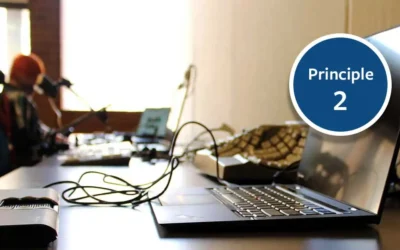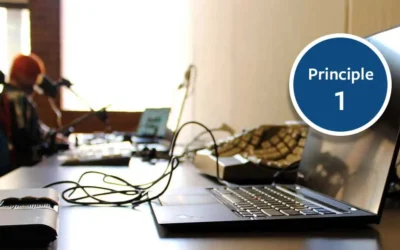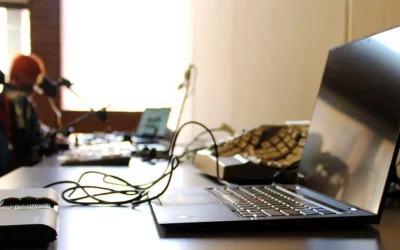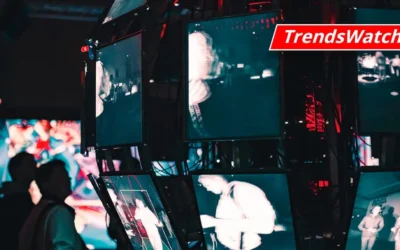The First 3 Things to Do if You’re New to Museum Grants

Rachael Cristine Woody
Are you new to applying for museum grant funding? You’re not alone.
Over the last ten years I’ve observed the museum field increasingly seek out grant funding to keep collection projects going when their other income streams have decreased. This increase in demand hasn’t been met with an increase in overall available funding. As a result, national granting agencies that use to have a 20-25% applicant success rate are now regularly below 10%. Additionally, few graduate and museum professional organizations regularly offer grant acquisition strategy or writing courses. When I was first learning, I had to rely on non-LAM grant courses and gain experience by regularly applying for grants. I don’t share this information to discourage you, but rather to prepare you. In order to be successful at applying for grants it can’t be done on a whim, with little dedicated thought given to the project, or submitted at the last minute. So, what are the first three things we need to do to prepare?
- Gather all the usual documents that are required for grant application
- Identify and prioritize projects that are suitable for grant funding
- Seek and apply to local grants first
Gather Documentation
The first, easily achievable task is to round up your museum’s documentation that the granting agency will most likely want to see. Those documents are:
- IRS 501(c)(3) letter (if a nonprofit)
- Previous fiscal year profit and loss statement
- Diversity, Equity, and Inclusion (DEI) statement
If you already have a project in mind and you’ve spent some time working on it, you should also prepare for and include the following project-specific documents:
- Project budget
- Project staff resumes
- Contractor or consultant bids
- Letters of support
- Others as necessary (ex: digital preservation policy, access policies, etc.)
Identify and Prioritize Grant Projects
To help eliminate the chances of a last-minute application, it’s important to proactively identify and prioritize the projects you think are ripe for grant funding. Once you know what projects are near the top of your list you can then thoughtfully research and select appropriate funding. If you need help thinking of funding ideas, please read this post: Top 4 Funding Ideas for Museums, and work through the exercises provided in this post: Working Your Museum’s Problems to Find Solutions to achieve some project clarity. If there are several potential projects prioritized for the year, I encourage you to read more on project planning, provided in this post: Creating a Museum Grant Writing Roadmap for 2019.
Focus on Local Funding Opportunities
If you’re a new museum or just new to grants, there’s a recommended progression to follow. Museums who seek grant funding are more successful when they build their progress steadily, starting with a small local grant, then a medium-sized regional grant, and then a large federal-funded or national grant. There are two immediate reasons for this: 1. Starting out small and local helps you (the grant writer) build grant writing skills and confidence; and 2. Having a proven grant track record that leads to a larger grant helps prove to the grant application reviewers that your museum will be able to responsibly handle a large grant project. Not sure where to look for your local grant opportunities? Stay tuned for two upcoming posts, Where are the Best Places to Find Museum Grants? Parts 1 and 2.
Conclusion
There are many things to learn and practice when it comes to grants, so I encourage you to complete the steps in this post and then check out the Additional Reading list (below). And don’t forget Lucidea has just launched a grant toolkit that includes a workbook to walk you through common grant application sections, and it offers four project templates you can plug in and play with. You can learn more about the resources via this post: We Invite You to Leverage a New Grant Resource for LAMs, or go directly to the Grants Workbook & Templates here.
Additional Reading
3 Common Hurdles to Get Over and Get into Grants
8 Tips to a Bulletproof Grant Proposal
Define Museum Success & Measure It
How and When a Museum Should Hire a Grant Specialist
How to Determine Museum Grant Eligibility: A Check List
How to Determine Museum Grant Suitability: A Check List
How to Increase Museum Grant Success by Mastering the Lexicon
Identifying Museum Funding Roadblocks
Museum Grant Application: What Happens if You Fail?
Museum Grant Pitfalls—Know & Avoid Them
Museum Project Break Down—A Template

Rachael Cristine Woody
Expert Rachael Cristine Woody advises on museum strategies, collections management, digital museums, and grant writing for a wide variety of clients. Learn about Lucidea’s Argus Museum CMS for virtual, multimedia presentation of collections, visitor engagement, and museum staff productivity and impact.
Never miss another post. Subscribe today!
Similar Posts
Museum Collections Online with Accessibility Principle 2: Operable
Compliance with WCAG Version 2.1 Principle 2: Operable
Museum Collections Online with Accessibility Principle 1: Perceivable
Compliance with WCAG Version 2.1 Principle 1: Perceivable, affecting information published from museum CMS to an online portal; expert guidance
Accessibility Standards for Museum Collections Online
A museum’s compliance with the ADA Title II 2024 update has benefits for its online content and for the museum’s community of users.
Museum TrendsWatch 2024: Digital Twins and Doom Loops & Combatting the Loneliness Crisis
Digital Twins is the construction of a digital surrogate for a person, place, or thing—one of several new concepts and trends in the museum sector.




Leave a Comment
Comments are reviewed and must adhere to our comments policy.
0 Comments